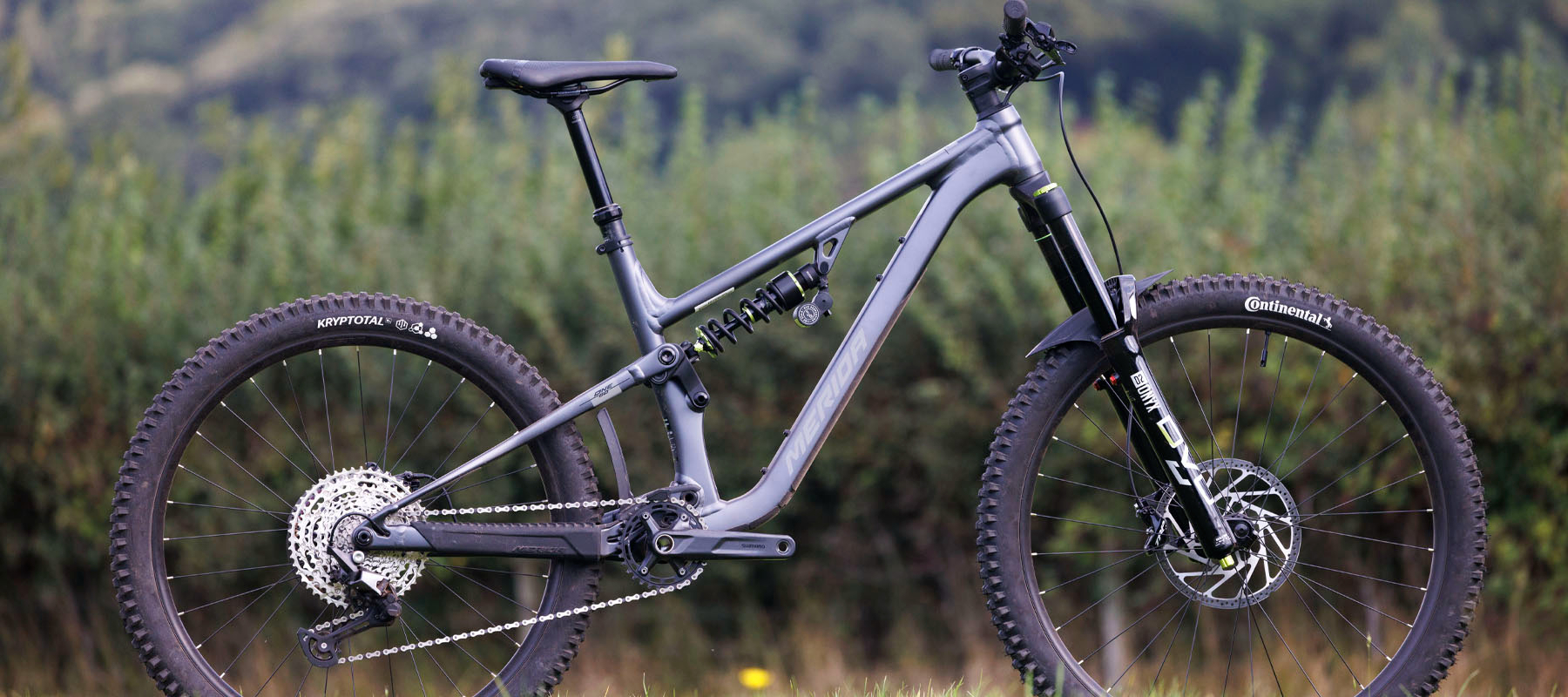Early Verdict
A tough and extremely capable bike designed for the bike park, with quality components where they count, in a relatively affordable package.
Pros
- +
DVO suspension, including coil shock
- +
Tried and tested, bombproof aluminum frame
- +
TRP brakes
- +
5-year frame warranty
Cons
- -
It’s heavy, but this won’t affect intended use
- -
Basic drivetrain and wheels won’t last forever
Why trust BikePerfect
Following the success of the redesigned One-Sixty, the new Merida One-Sixty FR brings more travel up front and a coil-sprung shock at the rear. It will only be available to buy in a mixed wheel ‘mullet’ wheel setup, although a flip-chip enables riders to run full 29in if they wish, and is based on the last year's One-Sixty aluminum frame. Rather than being one of the best enduro mountain bikes like it's predecessor, new One-Sixty FR is targeted at bike park rippers to provide an affordable and robust long travel option.
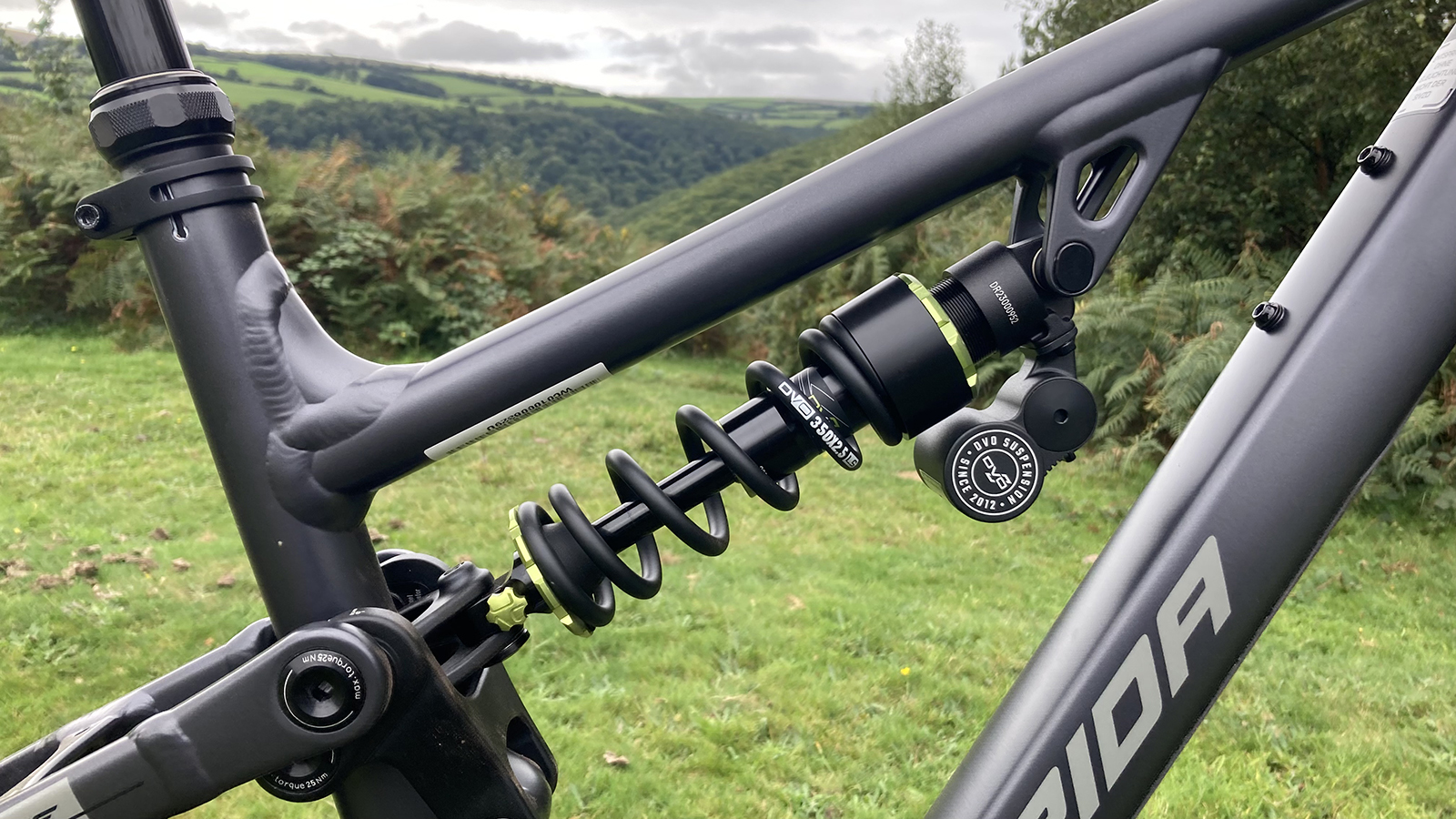
Design and geometry
The One-Sixty FR uses the same aluminum frame as the standard One-Sixty, but is configured as a ‘mullet’ wheel setup across all sizes. Front wheel travel has been increased to 180mm, courtesy of DVO and its new Onyx 38 D2 fork, and is paired with 171mm of rear wheel travel using DVO’s Jade X D2 coil shock.
The rear suspension uses Merida’s tried and tested FAST kinematic suspension. This negates the use of a seatstay pivot, instead relying on the flex in the aluminum seat stays themselves. Although now a common sight on carbon frames, it’s still unusual to see aluminum frames with linkage driven shocks relying on seatstay flex. The seatstays have been carefully butted and shaped to achieve the required flex, and Merida has carried out extensive testing at the Zedler Institute in Germany to validate the robustness of their design. Merida provides a five-year frame warranty to the original owner, which is particularly good for a bike destined for repeated hits at the bike park!
The geometry is suitably progressive for such a hard-hitting bike, with a 63.5 degree head angle and 78 degree seat angle, and a reach of 492mm on a size Long (aka Large). By keeping the standover height very low for all sizes, frame sizing is based on Merida’s ‘Agilometer’ sizing concept, that allows riders to choose a frame based on reach rather than leg length. Choose a long frame for high-speed stability, or choose a shorter frame for greater agility, or somewhere in the middle for a more balanced ride.
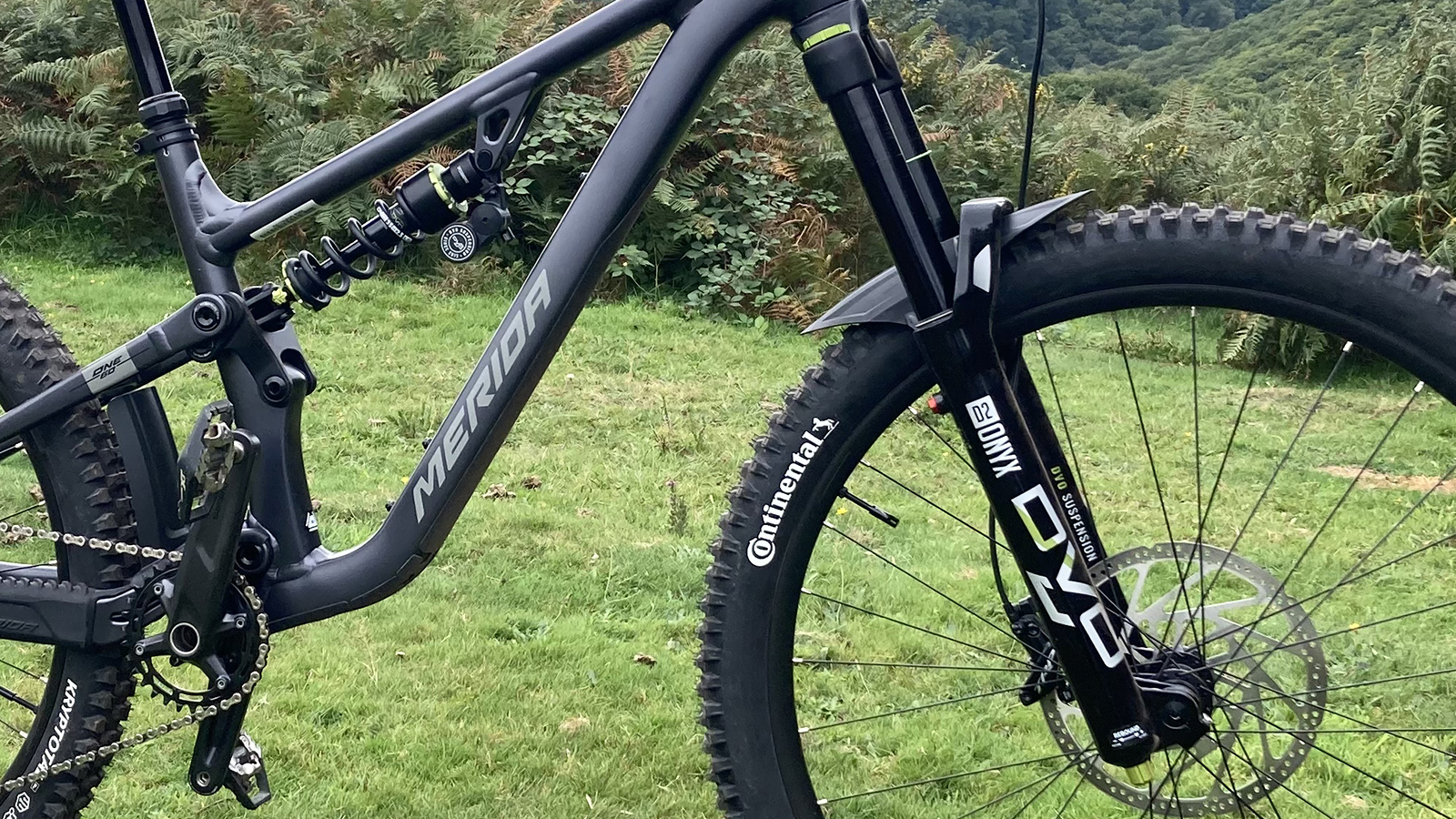
The frame itself looks very purposeful with large TIG welded joints and uses hydro formed shaping on the seat and downtube to create a tough looking package. A small strengthening gusset has been welded into the junction between the seat and top tube to provide extra strength.
In keeping with current trends, Merida has gone with internal cable routing for the One-Sixty FR, and the cables enter the frame through the Acros headset underneath the stem. The overall look is undeniably clean and uncluttered but can be a pain when it comes to working on your bike. Thankfully foam sleeves have been fitted to all internal cables to prevent any annoying rattles.
A bottle can be fitted in the front triangle, with an additional set of bosses provided higher up the downtube for a mounted accessory. There’s a decent sized rubber chainstay protector and additional frame protection on the underside of the downtube to protect the paint against rock strikes. A plastic fender has also been fitted to give the lower linkage some protection against unwanted debris.
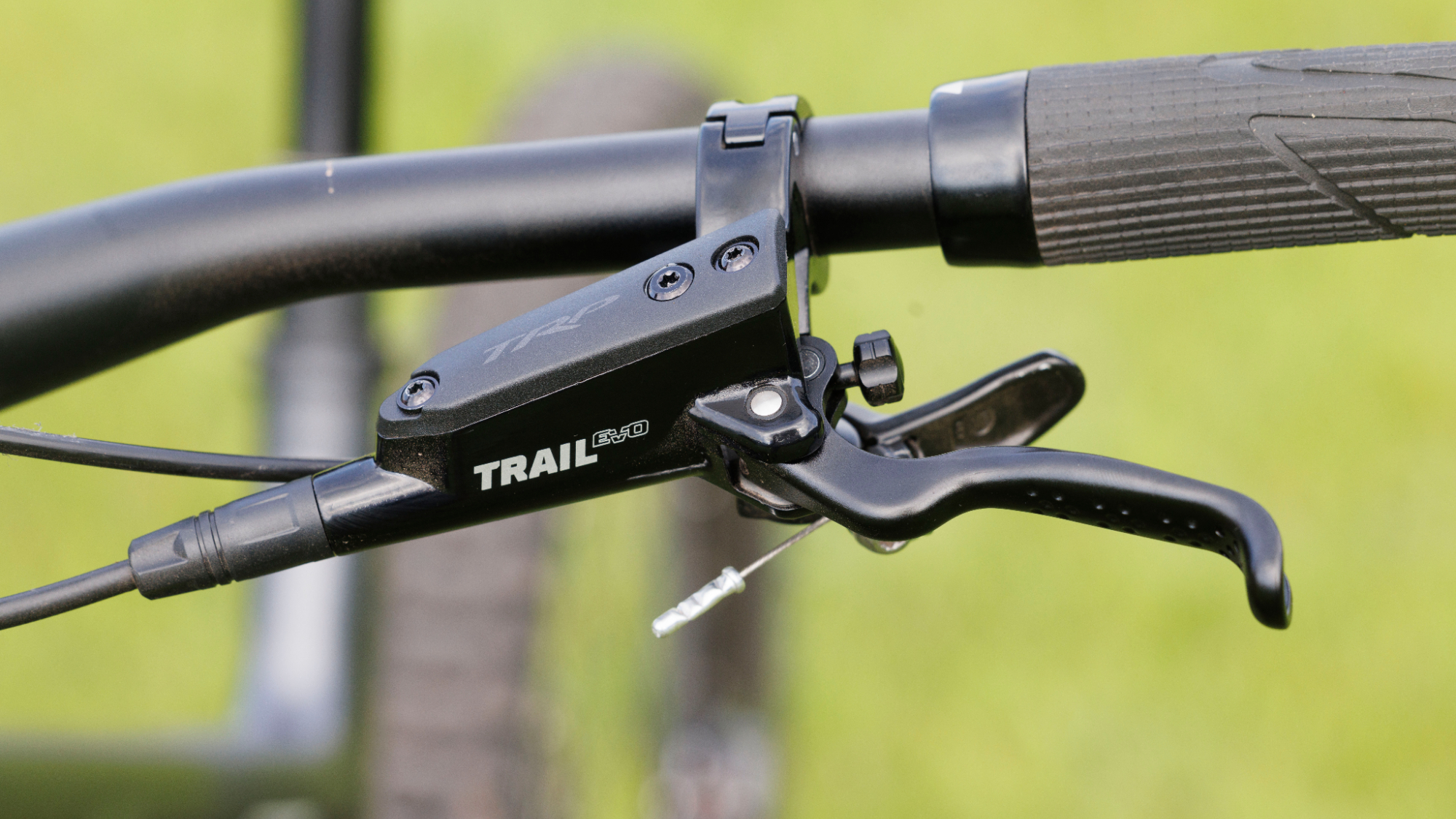
Components and build
Merida’s intention with the One-Sixty FR is to prioritize the quality of the suspension and braking components over the drivetrain, as these have the biggest influence on the usability of the bike in its intended environment. Drivetrain components inevitably wear out or get damaged, so money has been spent on decent components where they’re most needed. Suspension is supplied by DVO and is detailed above, while the brakes are TRP 4 Pot Trail EVO HD-M843, with a 220mm rotor at the front and 203mm rotor at the rear. The drivetrain is Shimano Deore 12-speed, with the exception of the KMC X12 chain.
The wheels are made up of Merida’s own ‘Expert TR II’ rims laced to Shimano TC500-MS-B hubs. The rims are tubeless ready but aren’t supplied taped or with tubeless valves, and have a 28mm inner width. The rear axle lever incorporates a 4mm and 6mm Allen key for quick trail side adjustments, which is a neat and well-considered feature. The tires are suitably tough Continental 2.4” Kryptotals, with a Soft compound Downhill casing on the rear, and Soft compound Enduro casing on the front.
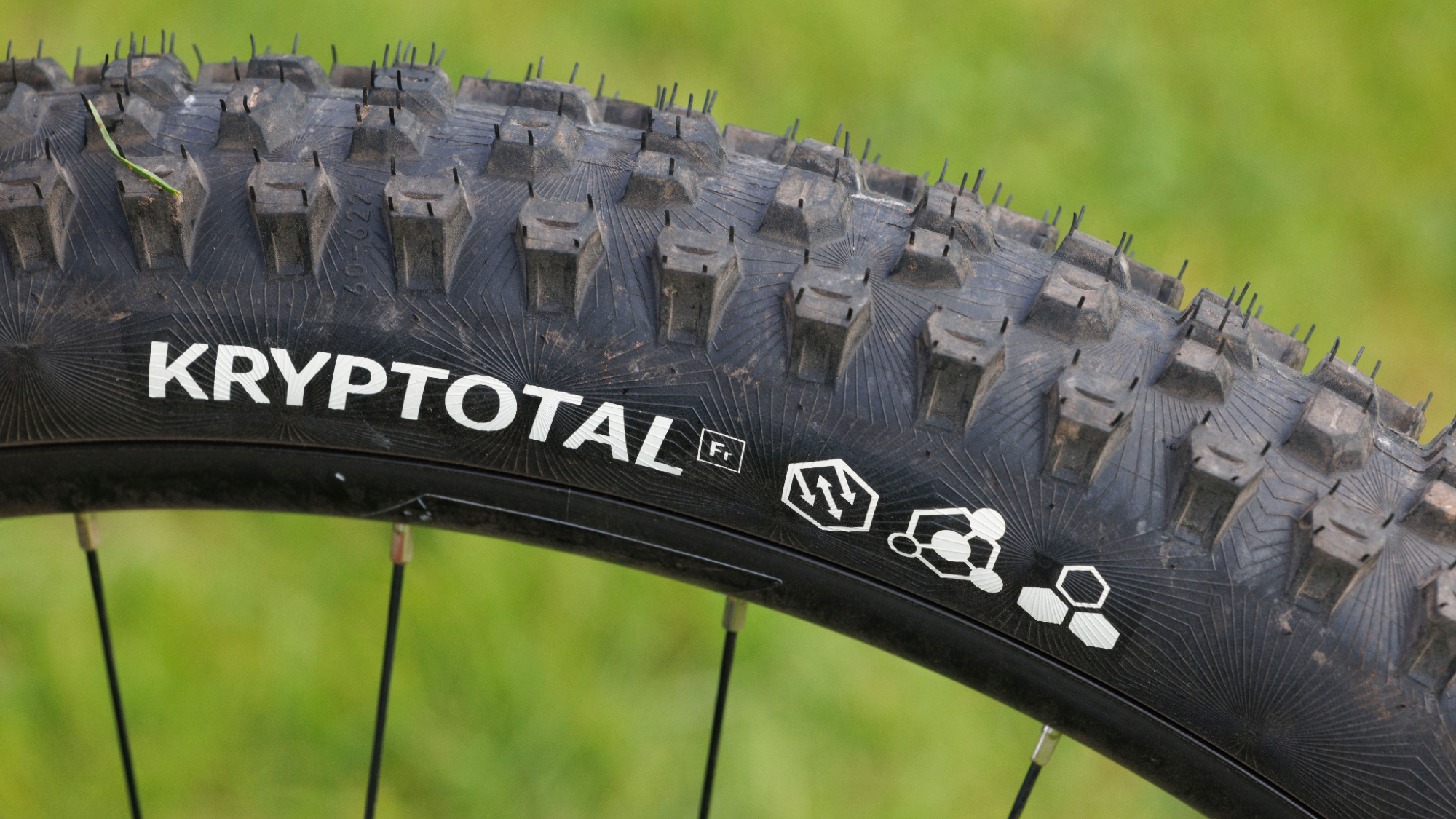
The finishing kit is all Merida in-house, with a nicely shaped 40mm stem that ties in well with the internally routed headset. The stem is matched to a 35mm diameter, 780mm width aluminum handlebar with 18mm rise on the XS/S and 30mm rise on the M/L/XL.
Merida’s new adjustable travel dropper seat post is fitted to all sizes, which provides tool-free travel adjustment from 30 to 230mm. The saddle is also Merida’s own Comp SL, which handily incorporates a neat multitool that attaches to the underside of the saddle and is supplied as standard.
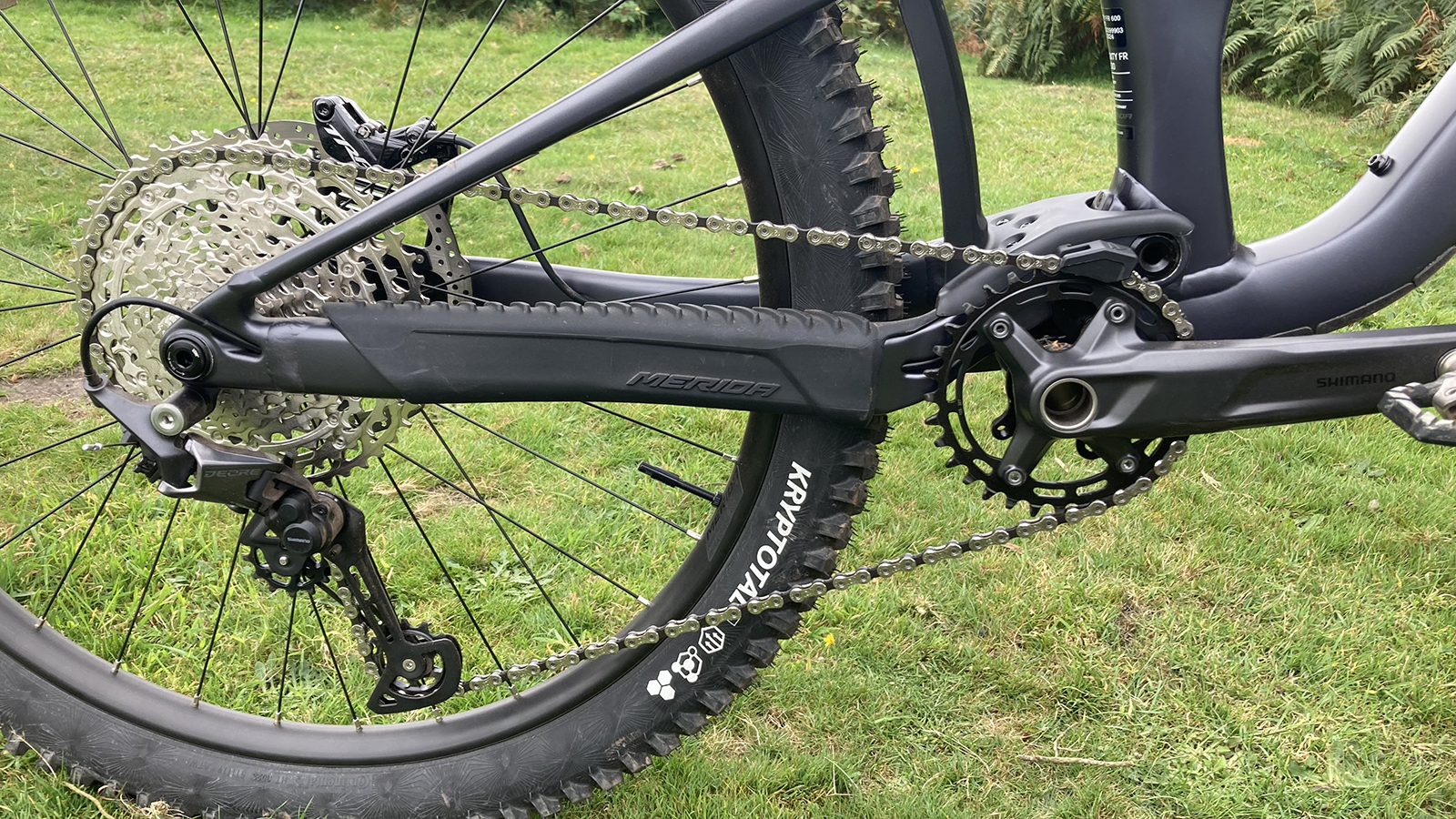
Ride, handling and performance
I was given the size Mid (Medium) One-Sixty FR to try at Merida’s launch event, which was being held on some of my local trails on the northern slopes of Exmoor. With a reach of 465mm, the bike felt quite middle of the road for a model with big intentions, but I settled in quite quickly. Though sizing up would have been easy, as the standover is so low across all the sizes. I was surprised how well the One-Sixty FR climbed. Obviously this isn’t what it’s intended for, but if you keep a smooth pedaling action, climbing is surprisingly bearable, and the DVO rear shock has a climbing switch to partially lock out the suspension if needed.
My first impressions of pointing the bike downwards on Exmoor's steep and technical descents was very promising. The coil-sprung rear was a big highlight with an incredibly supple action through the stroke and I never felt it bottoming out on the bigger drops. I needed the rebound adjuster fully open on the fork to track the ground effectively, but admittedly, I hadn’t spent long setting up the suspension before hitting the trails. I’m certainly no bike park pilot, so can’t testify to its jumping prowess, but my initial thoughts based on steep and technical descending is positive.
The Continental Kryptotal tires specced on the One-Sixty FR seem like a good choice, offering plenty of grip and side wall support to run at relatively low pressures, and suit the nature of the bike well. The TRP brakes were great throughout the launch event and provided ample stopping power to cope with the downhills we tackled on Exmoor, which ranged from fast and rocky to steep and loose. The Shimano Deore drivetrain was also faultless throughout too. I got on well with the in-house finishing kit and had no issues during the launch.
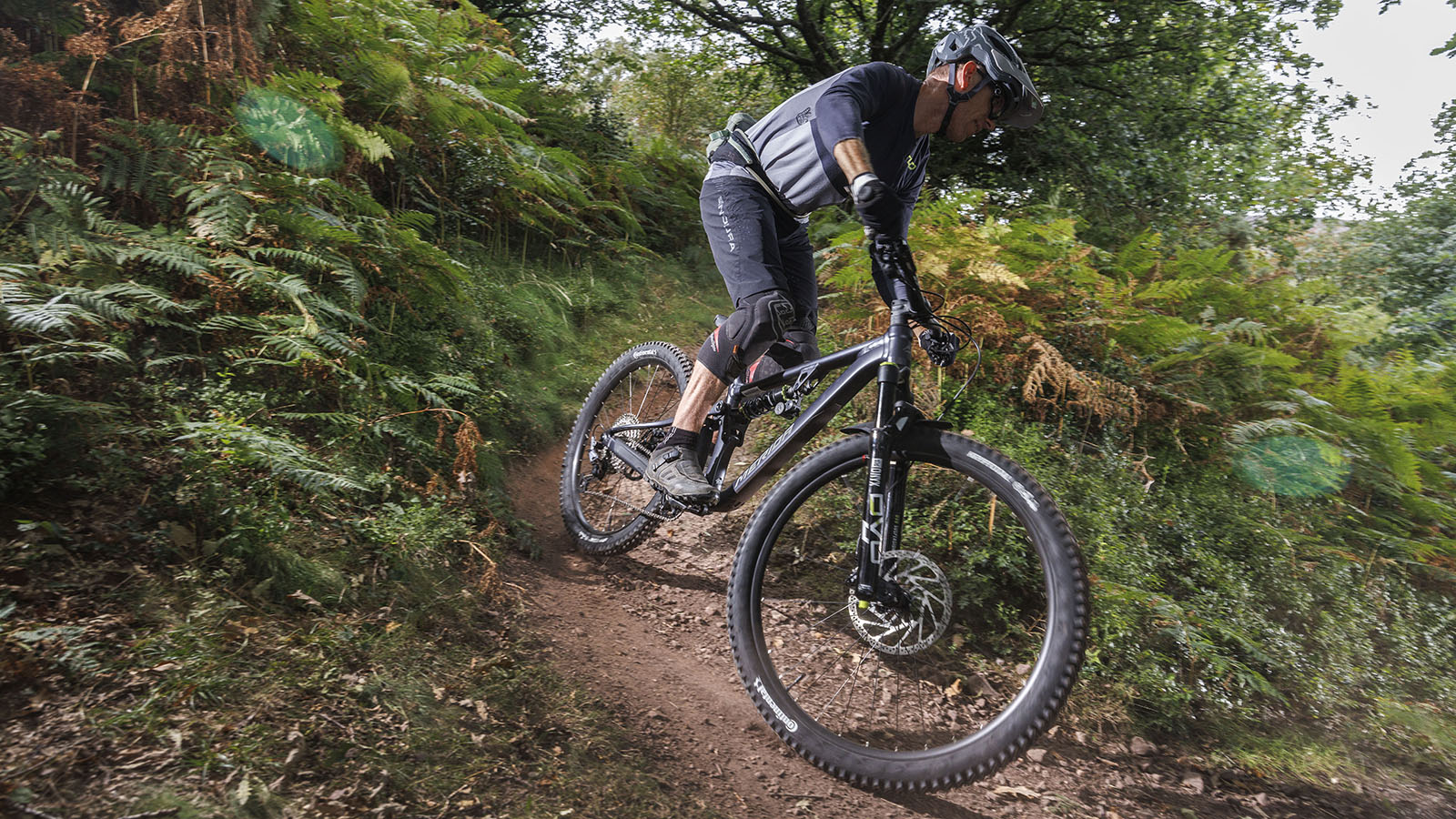
Verdict
After a day riding Exmoor's finest downhills, with the benefit of an uplift service, my initial thoughts on the One-Sixty FR 600 are all very positive. It’s a burly bike, designed to take some abuse, and Merida’s decision to prioritize suspension and braking chime well with its intended bike park use. The frame certainly looks up to the job, and has a proven track record when kitted out as a standard One-Sixty.
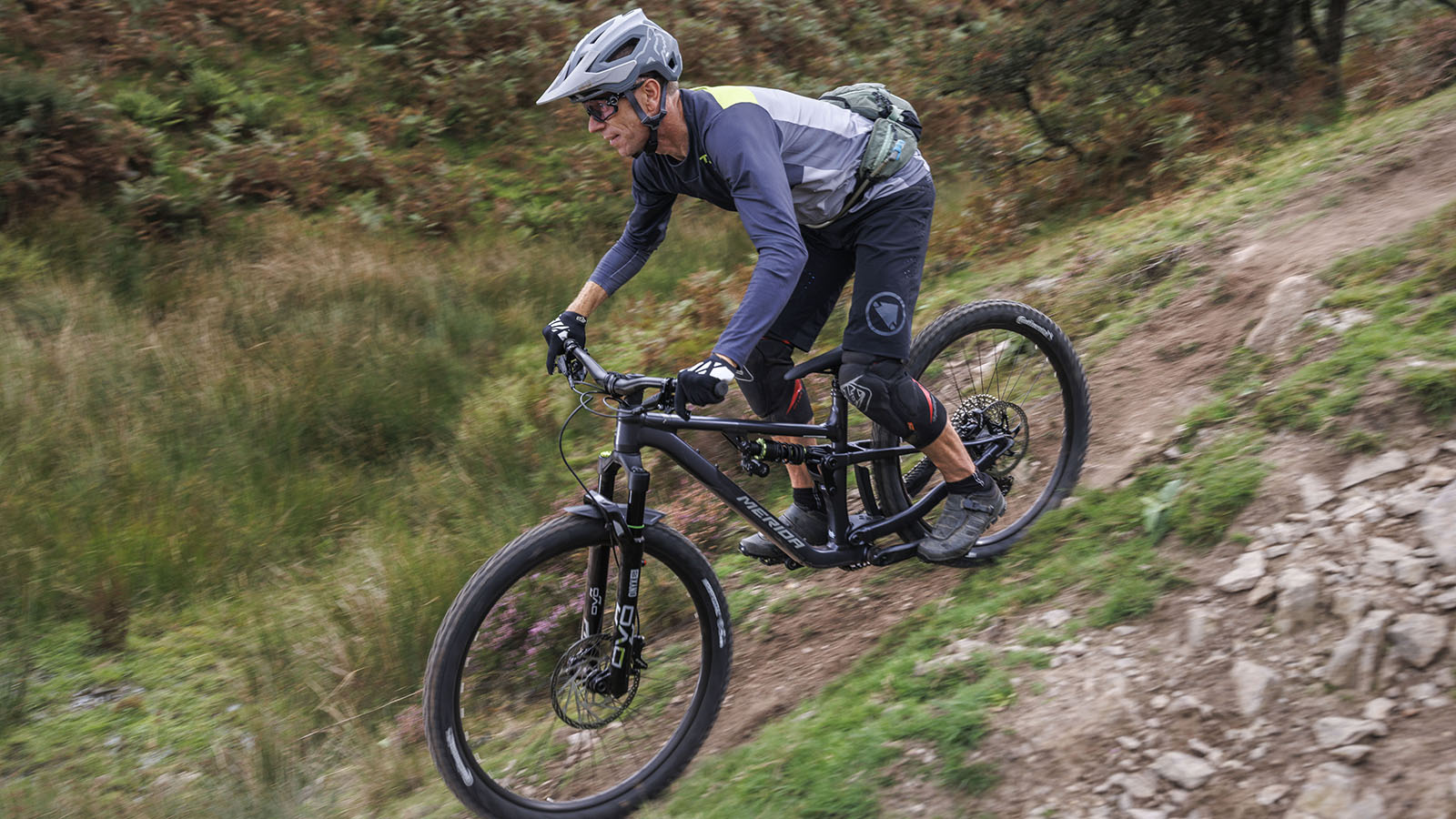
Tech specs: Merida One-Sixty FR 600
- Price: £3,500 / €4,200
- Frame: Aluminum
- Fork: DVO Onyx 38 D2, Air, 180mm, 44mm Offset 29”
- Shock: DVO Jade X D2, coil
- Headset: Acros ICR
- Derailleur: Shimano Deore M6100, 12-speed
- Shifter: Shimano Deore M6100
- Chain: KMC X12, 12-speed
- Crankset: Shimano Deore MT500, 32T, 170mm (all sizes)
- Cassette: Shimano Deore M6100, 10-51T, 12-speed
- BB: Shimano BB-MT-501, 24mm
- Wheels: Merida Expert TR rims on Shimano 32 spoke TC5000-B hubs, 110x15mm width front hub, 148x12mm rear hub
- Tires: Continental Kryptotal-F Enduro Soft / Kryptotal-R DH Soft, 29x2.4”
- Brakes: TRP Trail EVO HD-M843, 4 Pot.
- Rotors: TRP RS01E / TRP RC01E, 220mm, 203mm
- Stem: Merida Expert eTRII, 35mm diameter, 40mm length
- Handlebar: Merida Expert TR II, 780mm width, 18mm rise XS,S, 30mm rise M,L,XL
- Grips: Merida Expert EC
- Seatpost: Merida TEAM TR II, 34.9mm diameter, 0mm layback
- Saddle: Merida Comp SL
- Sizes: X Short, Short, Mid, Long, X Long
- Color: Metallic Black, Silk Dark Silver
- Weight: 17kg as stated (size Mid)
- Info: merida-bikes.com

James has over 35 years’ riding experience, getting involved with the burgeoning mountain bike scene in the late eighties and hasn’t stopped riding since. He raced cross-country across the South West of the UK for many years and has even dabbled with a bit of road racing. Whether going up, down, steep or flowing, James loves it all. Living in North Devon, the hills aren’t exactly mountainous, but they are plentiful, and James likes nothing better than exploring the wilderness of Exmoor and Dartmoor, and the occasional guided trip to the Alps to get the real mountain experience.
